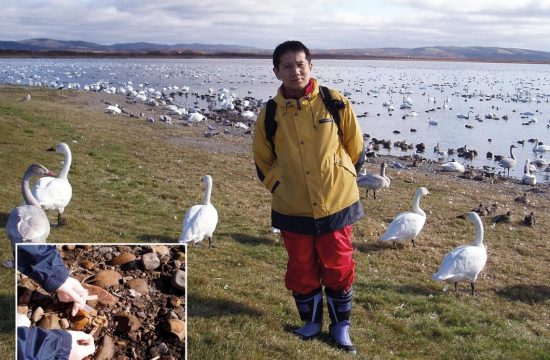Puskar Thapa

The Nepal Government recognized biotechnology as one of the key strategic drivers to propel the country’s social and economic development in pursuit of the status of a developed nation.
For this purpose, the Government has launched the National Biotechnology Policy in year 2006 A.D.
This policy mainly focuses better research on human health, crops betterment, animal health and waste research speaks Prof. Dr. Tribikram Bhattarai during the webinar, organized by Biotechnology Society of Nepal (BSN) on 16th September, 2020.
“After more than 13 years this policy has been revised with vague discussion with biotech policy makers of the China and India. The reworked copy was already submitted to respected ministry in 2073 B.S.,” he added.
The major by-products of biotechnology have not come out of government funded institutes. However private sector research labs and small scale industries are opening now.
Nepali researchers, however, have voiced concern over its lack of detail of limitation.
Nepali scientists, professors and concern officers of different private and government sector, however voiced immediate implementation without any delay.
The biotechnology policy was first passed by the cabinet in 2006. The Nepal Government, this policy again changed to new version after more than ten years.
The revised policy has been submitted by hard work of Dr. Samir Mani Dixit, Prof Dr. Tribikram Bhattarai and Dr. Mukunda Ranjit. This policy has been remaining as a draft copy in the ministry office.
According to approved Biotechnology Policy, the government will set up a national biotechnology research to push upward speed of research and encourage the private sector involvement in the national agriculture sector.
When making of revised one, so many things came in. Giving the reasons behind it, Prof. Dr. Bhattarai says so this policy is too vague says himself.
The purpose of development of policy is to do broad course of action or statements of guidance adopted by government at the national level in pursuit of fulfill the national requirements.
The main aim of the policy is to increase rate of productivity, population health and in make environment clean with the help of biotechnology.
The above statement is too deep and do not identify the methods from which government can implement, mentions, Ranjit, a member of policy making committee.
The policy outlines areas that are considered key for development of Nepal, includes, tissue culture, aquaculture, bio-pesticides, bio-fertilizer and other related biotech aspects, natural products in healthcare sector, genetic technologies to select and breed improved crop varieties, microbial culture to manage industrial waste, biosensors for monitoring soil and air pollutions, and developments of new tools to help conserve the country’s biodiversity, to diagnose disease.
The policy also covers, nation to be ICGEB member. There are lots of advantages to the students, researcher and institution to from the membership alleges Dr. Ranjit.
However, Prof. Dr. Rajani Malla’s articulates, the implementation of biotech policy and being a member of ICGEB is totally two different things.
The policy is really essential to develop a nation. It has nothing to do with ICGEB membership. ICGEB membership can be taken without help of policy.
Rijana Shrestha, President of Kathmandu University Biotech Creativity, says students of Biotechnology are skilled to conduct all laboratories activities, but policymaker are still unknown of it.
Giving more stress in establishing the National Biotech Research Centre, Prof. Dr. Janardan Lamichane, expresses government need to amend the draft copy of Biotechnology policy.
There need to be establishment of regulatory body. Who checks a basic requirement of biotech infrastructure, manpower, laboratory facilities and eligibility, to all the institutions so that authorities say this manpower can be fit in this area.
Dr. Dixit point of view there is a need to re-visit everything done so far. Policy maker don’t need to reinvent the wheel. Let’s push government to implement the draft copy, owned by ministry.
We have so many biotech graduates; unfortunately government is not able to use them in right perspective.
If government could use few of them then more than one hundred thoursand per day COVID-19 tests have been performing these days, just by using conventional PCR method recite the Dr. Ranjit.
Anuroop Manandhar, Chairman of Ficus Biotech Company says there is much skilled manpower, so there must be establishment of system where we can invest them.
Further, Biotech even to study and to be entrepreneur is more expensive rather other subjects. Thus, government should think while making a policy, he explained.
Dinesh Giri, representative of all students puts forward, there is no place to work and all the graduates have to go abroad for work or for better future.
In addition, Nabin Munakarmi, president of BSN says this type of interaction program will also organize in near future.








